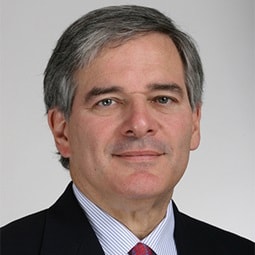A three-judge panel of the U.S. Court of Appeals for the Fifth Circuit has voided its previous near explicit declaration that make-whole provisions are always unmatured interest, and therefore subject to disallowance under section 502(b) of the Bankruptcy Code in Ultra Petroleum. The ruling is viewed by some as a victory, though not a definitive one, for certain creditors in their battle to have claims for make-whole amounts and post-petition interest at contractual rates allowed in the bankruptcy.
The background to this ruling is instructive:
- Ultra I: The bankruptcy court in In re Ultra Petroleum Corp. 575 B.R. 361, 370–71 (Bankr. S.D. Tex. 2017) (“Ultra I”) ruled in 2017 that for a class of creditors (which we will refer to as the “Opco Creditors”) to be unimpaired under Ultra Petroleum’s plan of reorganization they must receive payment of their make-whole and post-petition interest at the contractual rate. The debtors appealed the Ultra I bankruptcy court decision directly to the Fifth Circuit.
- Ultra II: A three-judge panel of the U.S. Court of Appeals for the Fifth Circuit then reversed in part and vacated in part the bankruptcy court’s decision in Ultra I, which we will refer to as Ultra II.
In Ultra II, the Fifth Circuit panel ruled that impairment under the Bankruptcy Code was distinct from impairment under a plan of reorganization. Significantly, in its Ultra II ruling the Fifth Circuit panel went on to suggest that, even if provided for under the applicable contract, make-whole claims should generally be treated as claims for unmatured interest under section 502(b) of the Bankruptcy Code, and, as a result, be disallowed in bankruptcy. The Ultra II court also found that the Opco Creditors had no legal right to collect post-petition interest.
- Ultra III: The Opco Creditors then filed a petition for a rehearing en banc (meaning before the entire bench of 17 Fifth Circuit judges). The same panel of judges that decided Ultra II treated the Creditor’s petition as a request for a rehearing before them (rather than the full Fifth Circuit). The panel then, in a decision we will refer to as Ultra III, reconsidered, withdrew and superseded its Ultra II decision.
Ultra III Decision
The Ultra III court addressed only the narrow question of whether creditors are ‘impaired’ by a plan of reorganization that pays them everything allowed by the Bankruptcy Code. See Ultra III at 2.
In simple terms, the Bankruptcy Code contains certain provisions that limit the amount or type of claims that can be paid to creditors under a plan of reorganization. For instance, under section 502(b)(6)1 of the Bankruptcy Code, claims by landlords under real property leases that are rejected are capped at the greater of one year or 15% of the rent due under the lease, not to exceed three years’ rent. 11 U.S.C. § 502(b)(6). For these purposes, a landlord may therefore be impaired, but the impairment is by the Bankruptcy Code rather than a plan of reorganization. Accordingly, provided a plan provides a landlord everything it is entitled to under the Bankruptcy Code, such landlord may be deemed unimpaired by the plan and therefore not entitled to vote on the plan.
Following this logic, the Ultra III court determined that a creditor who received all payments allowed under the Bankruptcy Code in a plan of reorganization should be deemed unimpaired, consistent with the decision the court made in Ultra II.
However, in contrast to Ultra II, the Fifth Circuit in its Ultra III decision did not opine on whether make-whole provisions are generally allowable under the Bankruptcy Code. Rather, the Ultra III court noted that whether a make-whole amount constitutes unnmatured interest and therefore should be disallowed under Section 502(b) of the Bankruptcy Code “depends on the dynamics of the individual case[,]” and “the bankruptcy court is often best equipped to understand these individual dynamics—at least in the first instance.” Id. at 11 (internal citations and quotations omitted). Moreover, the panel’s review of the record “reveal[ed] no reason why the solvent-debtor exception2 could not apply.” Id. at 12. Noting the bankruptcy court had not decided either of these issues in Ultra I, the Ultra III court remanded the case to the bankruptcy court to consider whether the make-whole claim constituted unmatured interest that should be disallowed, the appropriate post-petition interest rate, and applicability of the solvent-debtor exception.
Takeaways
As noted above, Ultra III voids Ultra II’s near explicit declaration that make-whole provisions are always unmatured interest, and therefore subject to disallowance under section 502(b) of the Bankruptcy Code.
However, Ultra III does not answer the question of whether, or when, a make-whole may be payable in the Fifth Circuit. That question may not be answered until the next chapter in the Ultra Petroleum cases, when the bankruptcy court addresses this question on remand.
Pending the decision by the bankruptcy court on remand, lenders and borrowers should consider revising the forms of make-whole provisions (e.g., including alternatives to yield maintenance formulas so the terms appear less like the economic equivalent of interest) or considering, if possible and appropriate, triggering an event of default before a potential debtor seeks bankruptcy protection.
Contributor(s)






